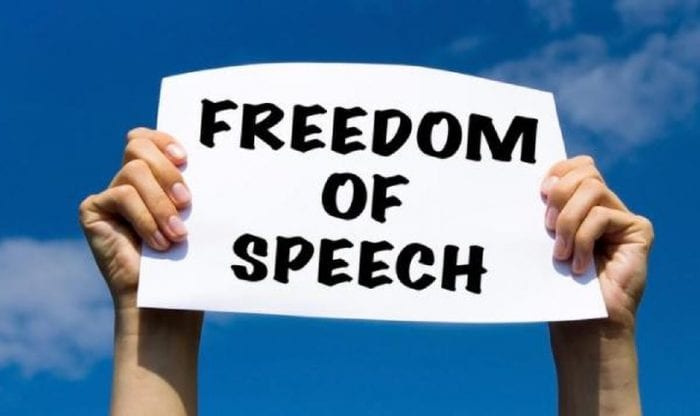Between You and Me: Freedom of Speech or Unlawful Speech

By Leah S. Dunaief
It may have been the start of a new year last week, but life certainly hasn’t calmed down much. We are witnessing history in the making. Demonstrators who had traveled from all over the United States to Washington, D.C. last Wednesday turned from listening to President Trump rage to marching on the Capitol. Once there, many broke into the building and caused vandalism, chaos and death. Thanks to instantaneous news flashes, we heard it and saw it happen, and now we are living through the consequences.
One of the consequences is bans of certain accounts by social media, led by Twitter and Facebook. Is that censorship? Is that an assault on our Freedom of Speech enshrined in the First Amendment to our Constitution?
A simple way to offer an answer is to take you into the world in which community newspapers and media operate. As you know, we are the ones who report on the news closest to our daily lives, the events and issues that concern us here in the villages and towns where we live, send our children to school and most of us work. We report comprehensively on local people, local politicians and local businesses that would otherwise be overlooked by the bigger dailies and networks. We are the watchdogs on behalf of the local citizenry.
Here are the rules by which we must publish:
While we print opinions as well as facts, opinions must be clearly labelled as such and are usually confined to two or three pages specifically designated for Letters to the Editor and Editorials. We also publish pieces called “Your Turn,” or “Our Turn,” again as opinion or analysis. Everyone has a right to their opinion, and the publisher has a right to its policies about those articles and letters. Our policy is to publish opinions in as balanced a way as we are sent submissions, subject to libel and good taste.
Libel rules are more straightforward than good taste, which is, of course, subjective. But here is the bottom line: publishers have the final say in what they publish because they are private, not governmental enterprises. Freedom of Speech, which specifically prohibits censorship by the government, does not apply to us. Decisions made by private businesses on what to publish are not First Amendment issues. And those decisions may reflect any number of concerns that may affect the company: financial considerations, the environment in which the publisher operates and whether the publication is an avowed partisan or an independent one.
We, for example, are an independent news media company, supporting neither major party unilaterally but rather our own sense of merit.
We are responsible for the accuracy of the facts in our stories. Do we sometimes err? Of course. When we make a mistake, our policy is to print a correction in the same place that we ran the error, even if that’s on the front page. When we run ads, by the way, we are also responsible for the facts in them — although not the advertiser’s opinions, which still are subject to considerations of libel and good taste. And when we run political ads, we must print who paid for the ad in the ad itself. When it is a group under a generic name rather than an individual, we must have on file the names of the executive officers of that group and those must be subject to review by any member of the public.
Do we have the legal right to refuse an ad or an opinion or a misstatement of facts? As a private company, we do. Further, just as it is against the law to yell “Fire!” in a crowded theater when there is none because that is not protected free speech, we have the civic responsibility to vet misstatements and untruths. And while we consider our papers safety valves for community members to let off steam with their strongly held opinions, we do not publish just to add fuel to a fire.
Twitter and Facebook and the rest who consider themselves publishers of news and not just telephone companies also have a responsibility to the public.
That, of course, raises another issue. Do we want so much power in the hands of a few high tech moguls, whose messages instantly circle the world? Or should they, like us, be subject to regulatory control?







